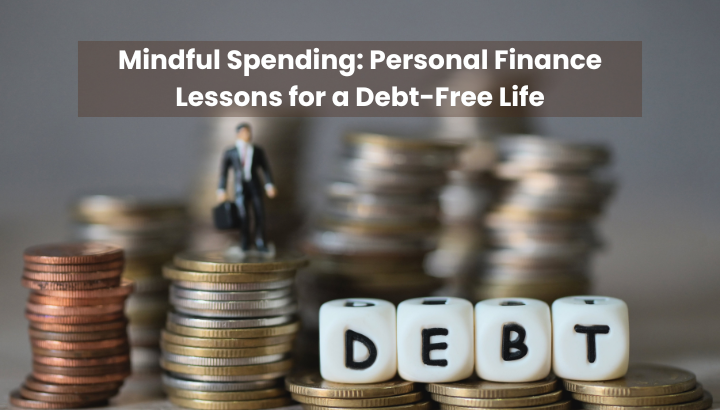In today’s fast paced life, staying smart with your money is most important if you want to stay away from the debt traps. Mindful Spending Personal Finance Lessons for a Debt-Free Life is all about staying aware of your daily spending and savings.
For most Indians, living a life without any debt is definitely possible by following money-saving tips for Indian households.
Here are some useful lessons related to finance that can help you find the best way to manage money and build a secure future.
Why Mindful Spending Matters
The true meaning of mindful spending is thinking twice before spending. It’s easy to fall into debt trap, especially with credit cards, online shopping, and social pressure. According to the RBI’s data on household finances, household debt in India went up by 14% in 2023, which is mostly because of loans and misuse of credit cards.
By staying mindful, you spend only on what really matters to you, stop impulse buying, and save more money for your goals.
Mindful Spending Personal Finance Lessons for a Debt-Free Life
Here are some easier and useful tips to follow for a better personal finance management:
Create a Budget and Stick to It
To create a proper budget and stick to it, try to follow the famous 50/30/20 rule. By using this rule, use 50% of your income for your needs, 30% on your wants, and the rest on savings and paying off debt. You can make it even more easier by using budgeting apps for Indian families like Moneycontrol or Walnut.
Track Your Expenses
Track your daily expenses by writing it down in a notebook or by simply using an app like Walnut. By doing this, you might get surprised by your daily spendings and you can cut down just a little on unnecessary things.
Avoid Impulse Purchases
Before you plan to buy something that you really don’t need, wait for 24 hours. Because it can give you time to reconsider your purchase.
Build an Emergency Fund
Try to save money equivalent to 3 to 6 months of your living expenses. Because this will help you during the times of unexpected spending without taking any loans from the bank.
Use Credit Wisely
Make sure that you pay your credit card bills on time before the due date, which can help you avoid debit card debt and high interest.
Invest Early
Start small and start early by investing your money in SIPs (Systematic Investment Plan) or PPF (Public Provident Fund) to experience the long-term benefits of SIP investing in India.
Overcoming Common Challenges
There is always a pressure of spending big on weddings and festivals, especially in Indian culture. To handle it smoothly, make sure to plan ahead and fix your budget instantly. Also, try not to compare your lifestyle with others on social media, because it can often lead you to overspending. Make sure that you stay focused and aim for your financial goals.
How to Improve Personal Finance Management in 2025: Simple Steps to Get Started
Conclusion
With spending wisely and making smart choices, you can easily enjoy a debt-free life. Personal finance management in 2025 is one of the best ways to manage money and feel secure about your future. Start small today and make a big difference tomorrow.

